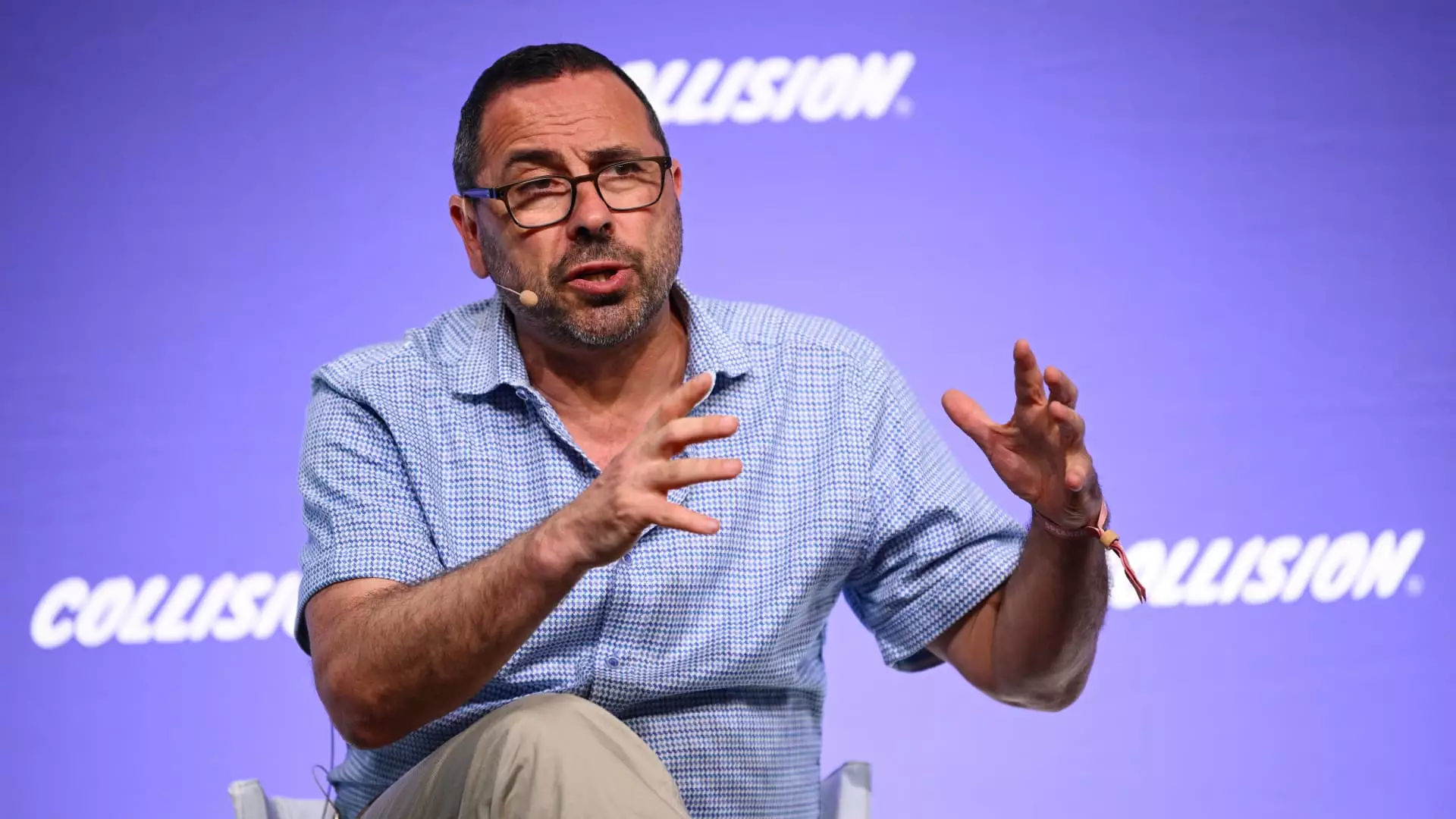Cerebras Systems has emerged as a formidable player in the AI hardware industry with the recent announcement of its initial public offering (IPO). Founded in 2016 and headquartered in Sunnyvale, California, this ambitious startup aims to carve its niche in a space dominated by tech giants like Nvidia, which has long been the industry standard for graphics processing units (GPUs) used in AI model training and deployment. Cerebras’s IPO filing underscores its aspirations, seeking to list under the ticker symbol “CBRS” on the Nasdaq, positioning itself for a significant leap in the market.
A key component of Cerebras’s strategy lies in its innovative technology. The company touts its WSE-3 chip, which boasts a greater number of cores and an enhanced memory capacity compared to Nvidia’s leading H100 chip. Not only does the WSE-3 present a strong technical case, but its physical size further differentiates it from competing products. This unique hardware design might offer an unmatched processing capability, crucial for intensive AI tasks.
Additionally, Cerebras does not only prioritize hardware; it has also ventured into providing cloud-based services powered by its specialized computing clusters. This dual approach could enable the company to attract a diverse range of customers, from startups to established enterprises seeking robust computing solutions for AI applications.
Financial Performance Challenges
Despite promising technology and a burgeoning market, Cerebras’s financial trajectory throws a complex light on its sustainability. According to its filing, the company reported a staggering net loss of $66.6 million during the first half of 2024, accompanied by revenues of $136.4 million. While these figures represent improvement from the previous year—where losses were higher at $77.8 million with revenues at a mere $8.7 million—significant challenges remain. For the entirety of 2023, the company reported a net loss amounting to $127.2 million against revenues of only $78.7 million.
The rise in operating expenses, particularly driven by escalated personnel costs, illustrates the financial strain of scaling the company. In the fiercely competitive AI chip market, Cerebras may need to carefully balance expenditure and revenue growth to avoid further losses that could deter potential investors.
Market Dynamics and Competitive Landscape
The AI chip market is becoming increasingly crowded, with established names like Amazon, Google, and Microsoft resorting to in-house chip development to gain a competitive edge. Cerebras also finds itself in competition with AMD and Intel, as well as other private firms producing specialized application-specific integrated circuits. This saturation poses a significant hurdle for any new entrants, including Cerebras, which must consistently innovate to maintain its market relevance.
Interestingly, a significant portion of Cerebras’s revenue derives from partnerships; specifically, the U.S.-based AI firm Group 42 was responsible for an impressive 83% of its revenue last year. This heavy reliance on a single client brings both potential for growth through focused relationships but also risk if this partnership were to falter.
Amid a restrained IPO market in 2024, Cerebras’s approach to public offering signals a strong belief in future growth potential despite current financial instability. Recent commitments by Group 42, which has pledged to purchase $1.43 billion worth of orders by March 2025, are encouraging indicators for investors. Such guarantees can bolster investor confidence and hint at potential secure revenue streams.
The backing from notable venture capital firms like Foundation Capital, alongside individual endorsements from influential tech figures such as Sam Altman, provides additional validation of Cerebras’s business model. However, the absence of major investment banks like Morgan Stanley or Goldman Sachs, which traditionally lead tech offerings, raises questions about the overall market confidence in this venture.
Cerebras Systems is a clear representation of the dynamic and rapidly evolving AI hardware sector. With its unique technology and ambitious growth strategies, the startup stands at a crossroads of opportunity and risk. As it seeks to differentiate itself in a crowded marketplace and navigate the challenges of scaling, the road ahead will demand continued innovation, effective partnerships, and keen financial management. Only time will tell if Cerebras can fulfill its potential or will it falter in the race to establish itself as a leader in AI chips.

Leave a Reply